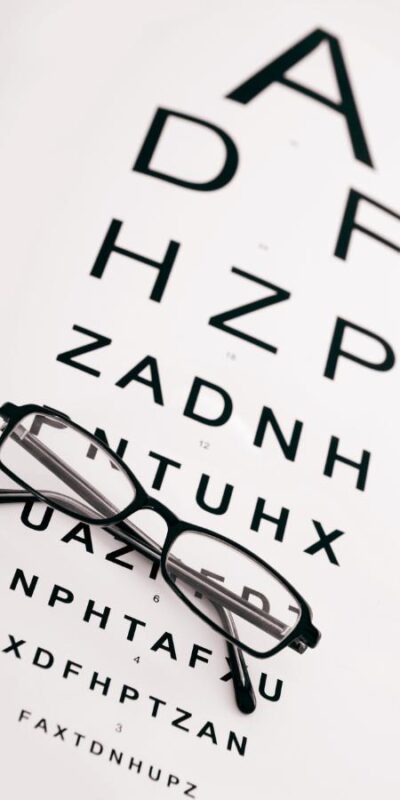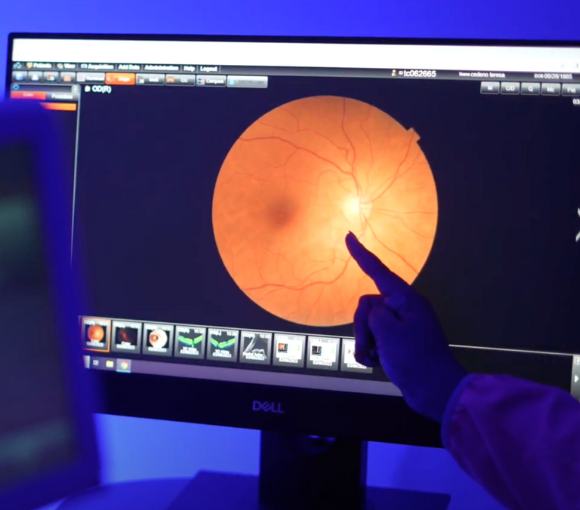As we age, our eyes undergo natural changes, some of which may lead to vision impairment. However, with proper care and regular check-ups, it’s possible to safeguard our sight and maintain a healthy vision into our golden years. This article will provide crucial insights and practical strategies to help older adults protect their eyesight and continue to experience the beauty of the world around them.
Without further ado, let’s delve into the essential tips for maintaining healthy vision as we age.
Age-Related Vision Changes: Understanding the Basics
Age-related vision changes are a natural part of growing older. As we age, several changes in the eye may lead to vision impairment. For instance, the lens of our eyes may harden and become less flexible, a condition known as presbyopia, which makes it difficult to focus on close objects. Other common age-related eye conditions include cataracts, glaucoma, and age-related macular degeneration.
While these conditions can be serious, it’s worth noting that they do not necessarily lead to complete vision loss. Regular eye check-ups and early detection can go a long way in managing these conditions effectively. Moreover, a healthy lifestyle can significantly contribute to the overall health of your eyes.
Let’s now explore some practical tips for protecting your vision as you age.

Identifying Common Eye Diseases in Seniors
These are some of the most common eye diseases seen in older adults:
Cataracts
Cataracts are characterized by clouding of the lens in the eye, leading to blurry or hazy vision. While cataracts are most commonly associated with aging, they can also be caused by other factors like prolonged sun exposure, diabetes, or smoking. Regular eye examinations can help detect cataracts early, and in most cases, surgery can restore clear vision.
Glaucoma
Glaucoma is a group of eye conditions that damage the optic nerve, crucial for good vision. This damage is usually caused by an abnormally high pressure in your eye and can lead to vision loss if not treated. Regular eye check-ups can help identify signs of glaucoma early and allow for effective management of the condition.
Age-Related Macular Degeneration (AMD)
AMD is a common eye condition among people age 50 and older. It’s a leading cause of vision loss in older adults. It gradually destroys the macula, the part of the eye that provides sharp, central vision needed for seeing objects clearly. While there is no cure for AMD, early detection can slow the disease’s progression and help maintain quality vision in senior years.
Diabetic Retinopathy
This condition affects individuals with diabetes. Over time, high blood sugar levels can lead to damage in the blood vessels of the retina, causing vision impairment. Maintaining control over diabetes is crucial to prevent the onset and progression of this eye disease. Regular eye examinations can detect diabetic retinopathy in its early stages.
Nutrition and Eye Health
A balanced diet plays a pivotal role in maintaining good eye health. Certain nutrients, such as Omega-3 fatty acids, lutein, zinc, and vitamins C and E, might help ward off age-related vision problems such as macular degeneration and cataracts. Here are some foods that are excellent for your vision:
Dark Green Leafy Vegetables
Spinach, kale, and other dark green leafy vegetables are packed with lutein and zeaxanthin—important plant pigments that can help stem the development of macular degeneration and cataracts.
Oily Fish
Salmon, tuna, and other oily fish are rich in omega-3 fatty acids, which may help protect against dry eyes, macular degeneration, and even cataracts.
Eggs
The yolk is a prime source of lutein and zeaxanthin—plus zinc, which also helps reduce your macular degeneration risk.

Citrus and Berries
These fruits are high in vitamin C, which has been shown to reduce the risk of developing macular degeneration and cataracts.
Almonds
They’re filled with vitamin E, which slows macular degeneration. One handful (an ounce) provides about half of your daily dose of E.
Incorporating these foods into your diet can help lead to good eye health. However, eating a balanced diet is not a substitute for regular eye exams. Regular check-ups allow for early detection of eye diseases and timely treatment.
The Role of Regular Eye Exams:
Regular eye examinations play a critical role in maintaining optimal eye health, especially as we age. These exams allow for the early detection of eye diseases before they cause significant vision impairment. During a comprehensive eye exam, an optometrist not only evaluates your prescription for eyeglasses or contact lenses but also checks your eyes for common eye diseases, assesses how your eyes work together as a team, and evaluates your eyes as an indicator of your overall health.
For adults over the age of 60, an eye exam is recommended every year, or as advised by your eye doctor. These regular checks can help identify issues at their earliest stages when they’re most treatable. Remember, preserving your eye health begins with proactive and preventive care.
Lifestyle Adjustments for Better Eye Health
Besides regular eye check-ups and a well-balanced diet, certain lifestyle adjustments can significantly contribute to maintaining optimal eye health as we age. First and foremost, quit smoking if you are a smoker. Smoking accelerates the development of certain eye conditions, such as cataracts and age-related macular degeneration. Secondly, be sure to wear sunglasses when you’re out in the sun to protect your eyes from harmful UV rays which can cause damage over time.
Thirdly, limit your screen time or take regular breaks during your screen time to avoid digital eye strain. Last but not least, regular physical exercise can not only help maintain your overall health but can also lower your risk of developing certain eye conditions.
Staying proactive about your eye health and making these lifestyle adjustments can help you enjoy good vision throughout your senior years. Remember, it’s never too late to start taking care of your eyes.
When to Consult an Eye Care Specialist
It’s important to consult an eye care specialist if you notice any changes in your vision or experience symptoms that may suggest a potential eye condition. These may include frequent flashes of light, floaters, eye pain, redness, swelling, blurred vision, or seeing dark or empty spaces that persist.
Vision changes that occur suddenly or progressively over time can be a sign of a serious eye condition. Moreover, if you have a pre-existing health condition such as diabetes or a family history of eye diseases, regular consultations with an eye care specialist are both necessary and beneficial. Remember, early detection and treatment are key to preventing or slowing down the progression of many eye diseases and can help preserve your vision.
Last Thoughts
In conclusion, maintaining good eye health is a multifaceted process that involves regular eye examinations, a balanced diet, lifestyle adjustments, and timely consultations with an eye care specialist when necessary. For those Medicare beneficiaries living in South Florida, you can depend on Santos Medical Centers for your vision care and overall health needs. Our team is committed to providing comprehensive and compassionate care, ensuring your golden years are marked by continued wellness and clear vision.

